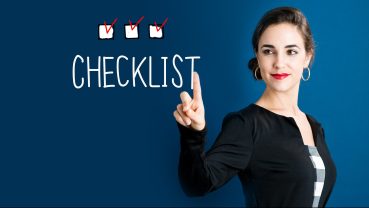 There is a great deal of controversy these days about what mastery in coaching actually looks like. The International Coach Federation has created stringent rules regarding coach competencies that make it simpler to identify the criteria a coach must meet to achieve the Master Certified Coach (MCC) designation. As of May 2017, only six percent of certified coaches are MCCs (803 of the 13,062).
There is a great deal of controversy these days about what mastery in coaching actually looks like. The International Coach Federation has created stringent rules regarding coach competencies that make it simpler to identify the criteria a coach must meet to achieve the Master Certified Coach (MCC) designation. As of May 2017, only six percent of certified coaches are MCCs (803 of the 13,062).
The current requirements to achieve the designation of Master Certified Coach are 200 hours of coach-specific training, 10 hours of working with an MCC mentor coach, a credible log documenting 2,500 hours of coaching with at least 35 clients, a performance evaluation based on audio recordings and written transcripts of coaching sessions, and the completion of the Coach Knowledge Assessment.
Certainly, 2,500 hours of coaching is a lot of experience. But what does it actually mean? And what should clients expect when they hire a coach who has been designated as a master? What would make it worth the extra money?
A master coach should be able to work with any kind of client, even if the match isn’t perfect. Any good coach will help their client identify goals, map out the steps to achieve them, pinpoint strengths to leverage and weaknesses to mitigate on the journey, and help keep the person on track. The master, however, will ensure that the journey is shorter, more efficient, and fun.
A masterful coach will
- Make the client feel heard and understood
- Leave the client with new learnings that are useful and actionable
- Provide direct but kind feedback when possible
- Tell the truth without blame or judgement
- Share context, information, a new model, or relevant research to help the client think something through or expand perspective
- Be a stickler for professionalism and crystal clear agreements
- Keep the coaching conversation laser focused
- Understand what motivates the client to challenge them effectively
- Meet the client exactly where they are
- Be an advocate and champion for the client’s best self
- Have achieved some kind of success themselves
- Be a Swiss bank vault for confidentiality
Many perfectly adequate coaches will do most of these things. It might be easier to identify a master by what they won’t do.
A masterful coach will not
- Have a pre-determined agenda about who or how the client should be
- Judge or criticize the client
- Get defensive in the face of feedback from the client
- Whip the client into temporary action by using fear or ego to generate adrenaline
- Ask why questions or questions that serve to only satisfy the coach’s curiosity
- Over-focus on the past
- Indulge in philosophizing—or worse, therapy
- Obsess about accountability
- Withhold an opinion or information that might be helpful
- Give specific advice, especially in areas where they are not expert
- Answer the question What would you do?
- Tell the client what to do
- Speculate about other people’s motives
- Get bogged down in the client’s story
- Create dependence on the coach
- Discuss other clients or boast about client successes—or worst case, take credit
A master coach will never forget that every client success is achieved by the client—and as good a coach as they may be, the coach is only as good as the client.
Master coaches are insatiable lifelong learners and are constantly adding to their knowledge and skills. I can’t imagine why anyone would hire a coach who isn’t constantly striving to improve and grow themselves.
The thing that is so hard to pin down, and impossible to teach, is what some might think of as wisdom. The master coach will have deep experience in several disciplines and have the flexibility of intellect and creativity to synthesize seemingly random concepts into useful ideas.
Any client, no matter how accomplished or brilliant, should be able to expect that a Master Certified Coach will be an intellectual equal and an emotionally well-adjusted grownup who takes full responsibility for their own frailties.
About the Author

Madeleine Homan Blanchard is the co-founder of The Ken Blanchard Companies’ Coaching Services team. Since 2000, Blanchard’s 150 coaches have worked with over 14,500 individuals in more than 250 companies throughout the world. Learn more at Blanchard Coaching Services. And check out Coaching Tuesday every week at Blanchard LeaderChat for ideas, research, and inspirations from the world of executive coaching.
About the Author
Follow on Twitter More Content by Madeleine Homan Blanchard
























